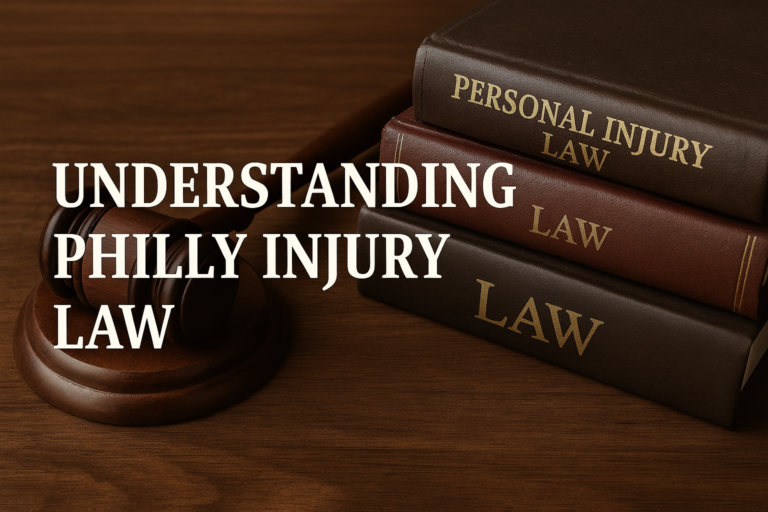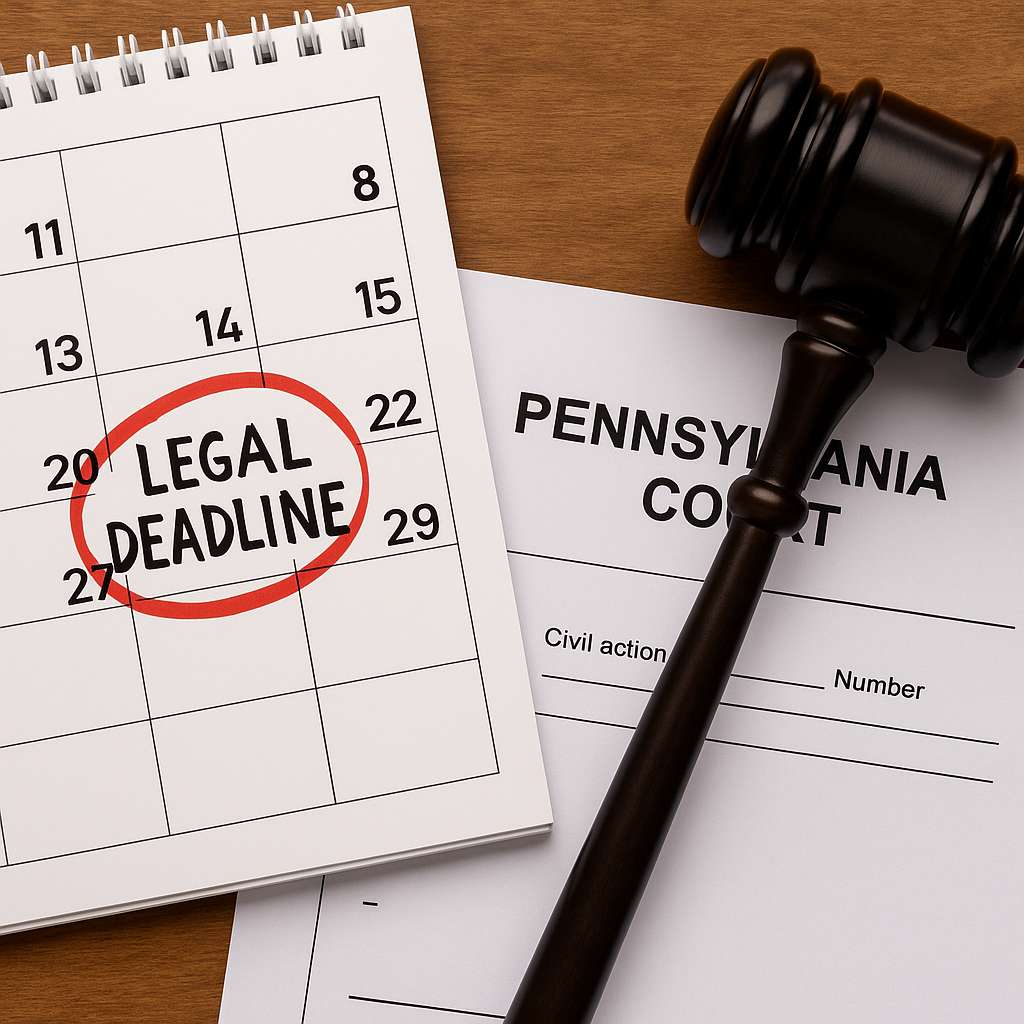
Understanding Philly personal injury law serves as a crucial mechanism for individuals who have suffered harm due to another party’s negligence or intentional actions. In Philadelphia, understanding Philly personal injury law and the nuances of personal injury law can empower victims to seek rightful compensation and navigate the legal process effectively.
What Constitutes Personal Injury Law?
Personal injury law encompasses legal disputes arising when an individual suffers harm from an accident or injury, and someone else might be legally responsible for that harm. The primary goal is to provide relief to the injured party and deter others from committing similar offenses.
Common Types of Personal Injury Cases in Philadelphia
In Philadelphia, personal injury cases are diverse, reflecting the various ways individuals can sustain injuries due to others’ actions. Common types include:
-
- Automobile Accidents: Collisions involving cars, motorcycles, trucks, or pedestrians often lead to personal injury claims, especially when negligence, such as distracted driving or DUI, is involved. Do You Need a Lawyer for a Minor Car Accident? What You Should Know
-
- Slip and Fall Incidents: Property owners have a duty to maintain safe premises. Injuries occurring from slips, trips, or falls due to hazardous conditions can lead to premises liability claims.Can You Sue for a TRIP and Fall on a Public Sidewalk in Philadelphia? Understanding Property Owner vs. City Liability
-
- Medical Malpractice: Healthcare professionals are expected to provide a standard level of care. Deviations resulting in patient harm, such as misdiagnoses or surgical errors, can constitute medical malpractice.
-
- Workplace Injuries: Employees injured on the job may pursue claims, especially if the injury resulted from unsafe working conditions or employer negligence.
-
- Product Liability: Manufacturers and sellers can be held liable for distributing defective or dangerous products that cause injury to consumers.
The Personal Injury Legal Process in Philadelphia
Navigating a personal injury claim in Philadelphia involves several key steps:
-
- Consultation with an Attorney: Engaging a knowledgeable personal injury attorney is crucial. They will assess the merits of your case, explain your rights, and outline potential legal strategies.
-
- Investigation and Evidence Gathering: Your attorney will collect pertinent evidence, including medical records, accident reports, witness statements, and any available photographs or videos of the incident scene.5 Essential Photos You Should Take After a Car Accident
-
- Filing a Complaint: This legal document initiates the lawsuit, detailing the facts of the case, the defendant’s alleged negligence, and the compensation sought.
-
- Discovery Phase: Both parties exchange information through depositions, interrogatories, and document requests to build their respective cases.
-
- Negotiation and Settlement: Many personal injury cases are resolved through settlements before reaching trial. Your attorney will negotiate with the defendant’s legal team to secure a fair compensation amount.
-
- Trial: If a settlement isn’t reached, the case proceeds to trial, where both sides present evidence and arguments. A judge or jury then determines liability and the appropriate compensation.
What to Do After an Accident in Philadelphia: A Step-by-Step Legal Guide
Statute of Limitations in Pennsylvania
In Pennsylvania, personal injury claims must be filed within a specific timeframe, known as the statute of limitations. Generally, victims have two years from the date of the injury to file a lawsuit. Failing to do so can forfeit the right to seek compensation. It’s imperative to consult with an attorney promptly to ensure compliance with these deadlines. https://www.findlaw.com/state/pennsylvania-law/pennsylvania-civil-statute-of-limitations-laws.html
Comparative Negligence in Pennsylvania
One of the most important legal doctrines that impacts personal injury claims in Philadelphia is comparative negligence. Under Pennsylvania law, if a plaintiff is partially at fault for an accident, they may still recover damages—so long as their level of fault does not exceed 50%. However, the final compensation is reduced by the percentage of fault attributed to the injured party.
For example, if you were found to be 30% responsible for a car accident and awarded $100,000, you would receive $70,000. This rule applies to many types of cases including slip and falls, auto accidents, and bicycle collisions.
Understanding how this rule may affect your claim is critical—particularly in complex multi-party incidents.
Pain and Suffering in Personal Injury Cases
Beyond economic damages such as medical bills and lost wages, Pennsylvania law also allows injured individuals to pursue non-economic damages, often referred to as pain and suffering. These cover:
-
Chronic physical pain
-
Emotional distress
-
Loss of enjoyment of life
-
Anxiety, PTSD, or depression following an accident
Calculating pain and suffering can be subjective, which is why detailed documentation (e.g., therapy notes, medication records) and persuasive advocacy from an experienced lawyer are vital.
Pain and Suffering: How Much Can You Recover in a Personal Injury Case?
Why Legal Representation Matters
Engaging an experienced personal injury attorney offers several advantages:
-
- Expertise: Attorneys understand the complexities of personal injury law and can navigate the legal system efficiently.
-
- Negotiation Skills: They can effectively negotiate with insurance companies and opposing counsel to secure fair settlements.
-
- Litigation Support: If a case goes to trial, attorneys provide robust representation to advocate for your interests.
In Philadelphia, numerous reputable law firms specialize in personal injury cases, offering free consultations to assess potential claims. Engaging with these professionals can significantly impact the outcome of your case.
Understanding personal injury law in Philadelphia equips victims with the knowledge to pursue justice effectively. By recognizing common case types and familiarizing oneself with the legal process, individuals can navigate their claims with confidence and seek the compensation they rightfully deserve.
When to File a Personal Injury Claim in Philadelphia
If you’ve suffered injuries, don’t delay. Even if you’re unsure whether you have a case, reaching out for a free consultation with a personal injury lawyer can provide clarity. Lawyers can also issue preservation letters to make sure evidence like surveillance footage or incident reports is not destroyed.
Top Personal Injury Lawyers in Philadelphia | PhillyLegalConnect
Personal Injury Law and Insurance Companies
In many Philadelphia personal injury cases, insurance adjusters are the first point of contact after a claim is filed. It’s important to remember that insurance companies are not on your side. Their goal is to minimize payouts.
Common tactics they use include:
-
Offering lowball settlements quickly
-
Denying liability or delaying responses
-
Requesting recorded statements to use against you later
Having an attorney communicate directly with the insurer often leads to better outcomes. Additionally, an attorney can help ensure you’re not accepting a settlement that fails to cover long-term costs like follow-up surgeries or physical therapy.
The information provided by PhillyLegalConnect is for general informational purposes only and does not constitute legal advice. We are not attorneys, and no attorney-client relationship is formed by interacting with our platform. For advice pertaining to your specific situation, we recommend consulting a qualified legal professional.



